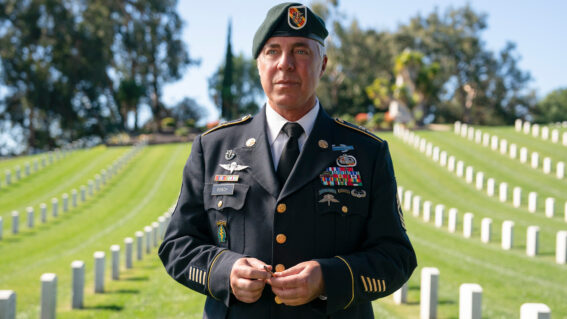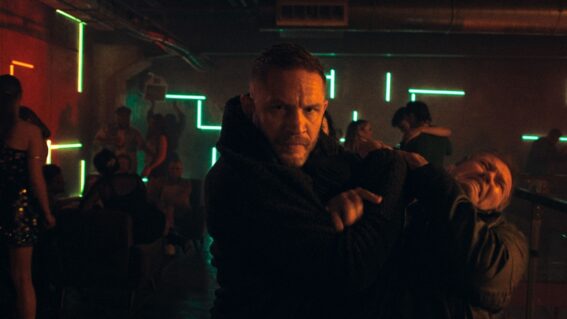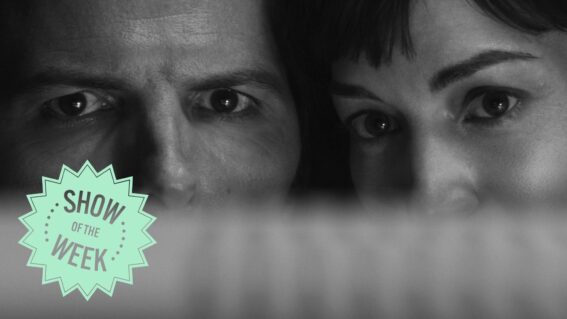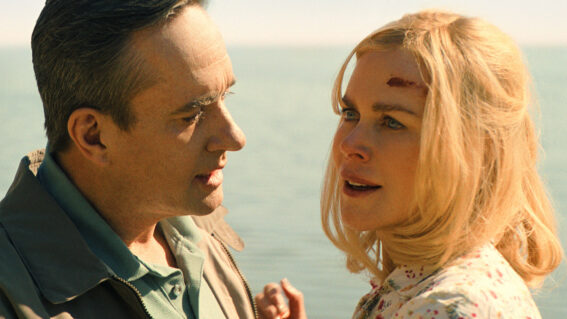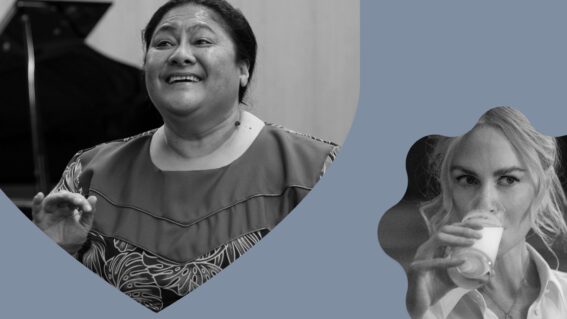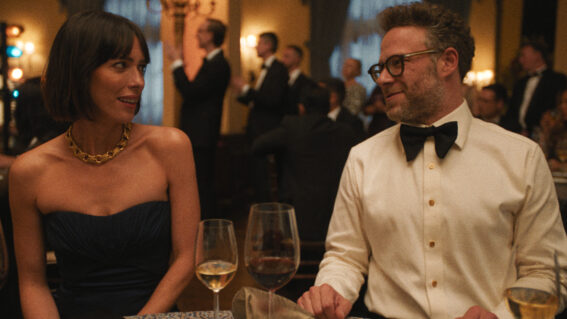Full interview: Director John Maclean on ‘Slow West’
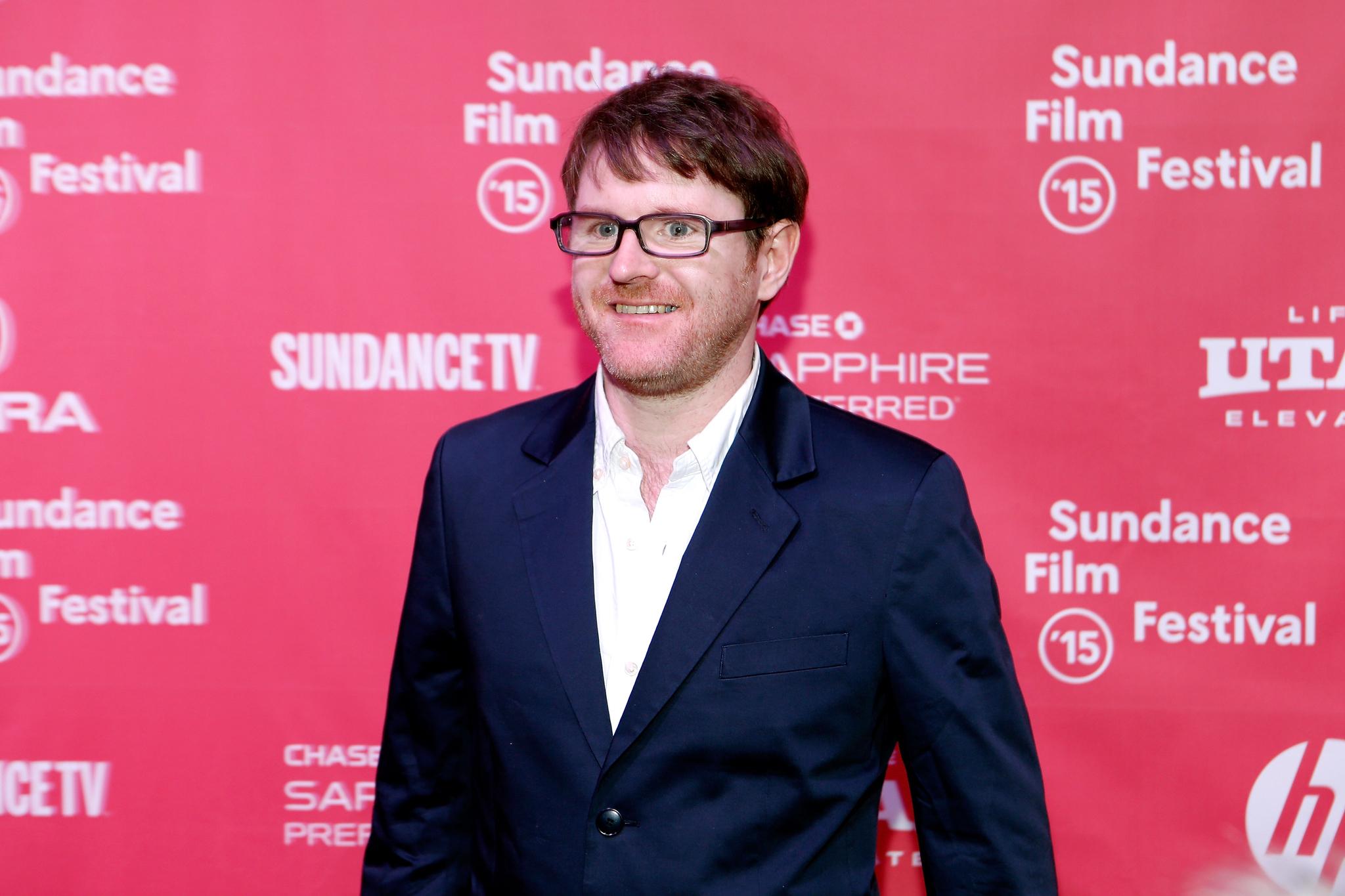
Way back in November 2013 I found myself in Twizel, and on the set of Slow West. The debut feature by Scottish director John Maclean, Slow West is, as the title suggests, a Western – albeit one with unique elements, and not just the New Zealand geography standing in for that of Colorado…
FLICKS: You’re here in New Zealand shooting. How long has it been since the first idea for ‘Slow West’?
JOHN MACLEAN: Well, I started thinking about the idea a couple of years ago, it might be even three or four years ago, and I thought about the Highland Clearances [18th/19th Century forced displacements] in Scotland and Merchant Ivory style films, and then thought about the Wild West. So then I thought it would be nice to do a story that was people from Scotland going to the West. And then also watching American Westerns, there were always Americans in the film. I’m thinking well, my understanding is that there were a lot of Germans and Swedish and Scandinavians and Irish and English and Scottish. so I thought let’s do it from that angle; from a tourist perspective which was always a nice perspective of America
And now you find yourself a tourist here. How did that happen?
The very first issue was having Michael [Fassbender] in November, because in the Northern summer he was picked up for other films. So I was looking in November, and then Robbie Ryan the DOP was saying, “Well, New Zealand is like Colorado, why don’t we shoot it there?” And then I just came out and did a couple of recces and said yes. The more people I speak to in the crew, they’ve been wanting Westerns here for a long time, and all of them said it was a great place to shoot a Western. So I’m kind of surprised people haven’t done it sooner. I think there was a Western [Good For Nothing] done here last year or a year before.
What’s it like doing your first feature on the other side of the world from home?
I’ve never really thought about that so much. It’s quite nice because I don’t think there’s much difference between doing a feature anywhere in the world. I think the difference to me is whether you do it in the city or in the countryside, and the fact that we’re not in the city is just great. It’s much easier to capture an interesting vibe and the weather and light and all things that I’m interested in. So it’s more like it’s great doing my feature outside in decent weather in beautiful landscape. So that’s amazing. And whether this is the north of London or in New Zealand is not such a big deal when it’s just great being here.
Aside from scale of budget and scale the amount of shots and so on, how does it compare to making a short film? What’s different about it?
A short film is 10 minutes and a feature film is 90 minutes, so I initially thought that it would be 10 times the work. In actual fact it’s ten cubed. This is sort of a different beast, absolutely, completely, and yeah it’s different like just going out for a stroll and climbing Mount Everest [chuckles]. Being prepared, story boarding, casting; it’s just everything is more important. And the more prepared you are, the easier it is on the six weeks that you shoot. So when I’m actually shooting I am over prepared usually so I find it quite relaxing and yes, I can get the same enjoyment as I did doing the short film; it’s just going on for longer. We’re five/four weeks in so we’ve got a week and half here, then a week in Scotland.
What’s the thing you’re most pleasantly surprised by about the shoot so far?
My pleasant surprise is how great the crew is, how there’s no one single person who’s a bit of an ass [chuckles]. Yeah, it’s just how well everyone is working and how the cast and crew are bonding and working together is sort of just an amazing thing.
What’s the trickiest experience you’ve had so far?
It’s really gone really well. I’m in touch with the weather, it has been perfect so far. The trickiest thing… oh gosh. Yeah, the trickiest thing is not over doing the weekends, because the weekends you’re supposed to relax, but there’s so much going on here the weekends that I’m finding it tough to relax. It’s all sport, so every weekend there’s a decathlon
Welcome to New Zealand.
Yeah. Last weekend we did go kart racing, soccer, table tennis – yeah, that was last weekend. And we’ve done rock climbing and snowboarding [chuckles]. So yes, trying to calm down on the weekends has been the trickiest thing.
How critical was it for the film for Michael to be part of it? Obviously there’s been a little bit of partnership in the past?
Well, it’s just amazing. We worked together on two short films and I used to get him for a day for one short film and three days for the next short film, we developed a working relationship and I got to know him. I got him for this which is amazing. I think he’s been offered every single script in the world from every director in the world. So for him to want to do this is amazing. And when you get him on board, it energizes everyone else because he comes with such weight, and then when you get him on camera, that’s the goal, so yeah, there’s no negatives there either.
What impact does that have on the crew?
That’s hard to say, I think the crew is so professional that they’re just all in their own worlds. It’s just fascinating to see how everyone is concerned about their area of expertise and then it all comes together, so I don’t think Andy the gaffer and Robbie the DOP care too much about anything but light. And then I care a little bit about everything and so yeah, we’ve all got our little areas and hopefully it all just comes together.
When did the idea about seriously making films strike you?
I always made daft films with my mates, it’s like anything that you really enjoy doing. You don’t think “I can do that for a living”. My wife enjoyed making ice cream when she was younger, and maybe she said, “oh, you can never be an ice cream maker” but you actually can. I just thought I would have to go through a lot more stuff that I didn’t want to do before I got to do what I got to do, but luckily because I met Michael, because I met Michael’s agent Conor, I didn’t have to go the music videos and adverts route. So on TV, I’ve never done any telly adverts or music videos; I just went straight from my own crazy stupid short films to slightly more professional short films to this, so I’m very lucky.
Do you think that your musical background in The Beta Band has had a bit of an impact on it on well? As in just doing some stuff, rather than going around talking about it?
Well, I guess it’s about knowing what I can do best, and I don’t think I could direct telly, to be honest, because I don’t know anything about coverage or blocking or anything. But I watch a lot of films and I can kind of see how films are put together, and I’ve always sort of been interested in that – how films are put together. So I guess in that respect it’s sticking with your guns, and it was the same when I was in the band; we didn’t do anything that we didn’t really want to do. So you just stick at it and try not to compromise and eventually also come up with something.
You mentioned before that you’re extremely organized when it comes to prep. Does that leave much room for improvisation?
Yeah, of course. I mean, that’s a great thing about being prepared; it’s a great thing about doing it on my own story boards. You can abandon them, then you just go with it. And you can feel comfortable and relaxed and go with it, because if ever you get stuck, you just go back to the story board. And I’ve got a lot of the actors to say what they want to say, not bother too much about, “oh no, it has to be this line in this script,” because you can always go back. So you just got to let it go, let it flow and then you’ll get better stuff than you imagined, and that’s what’s happening, so yeah.
Is that something that you saw happened in your short films or did you not have this luxury?
No, I saw it with the short films as well; I mean the second short film. The first short film, Man on a Motorcycle was crazy; it’s a mobile phone rising above London on the back of a motorbike. But the second short film, Pitch Black Heist, I did a story board every shot and was quite prepared, and then because of that we’ve wrapped early every day and had a great time, and it’s down to that preparation.
You talked about Michael a lot, how did you put the rest of the cast together?
Well, some I had in mind from very early on like Ben Mendelsohn and Rory McCann. Kodi [Smit-McPhee] quite early on was a first choice. And then others like Caren [Pistorius], we cast for her and she was just outstanding on the casting tape, and it was just like, well that’s a no brainer. That happened with all the New Zealanders, that there was always one or two that were just like “that’s the person”.
Was there a particular Mendelsohn performance that stood out for this?
I guess it was Animal Kingdom. That was when he’s at his sort of most unpredictable. And then seeing Killing Them Softly and The Place Beyond the Pines… he’s had a great run. But you never want to choose an actor because they’ve done what you want them to do; that’s why they’re actors. There wasn’t one single performance. It was more just a general mixture of all this performances.
What’s the allure of the Western, and why did you decide to make one?
I think the first film I ever saw in the cinema was a Western. My dad took me to see it; he’s a Western fan. I think is was called something Texas Ranger – I can’t remember. But another one – a Douglas one – about a runaway stage coach, I think that laid the seed. Then, as I say, my dad’s always watched Westerns and loves them. Then, I started loving them when I started seeing things like Once Upon a Time in the West, The Good, the Bad, and the Ugly. That was the first “wow”. When I worked in a cinema we used to show them as late night double bills in Edinburgh. Then, never really thinking I would want to make a Western, especially not for a first film. It sounds a bit crazy.
Then, as I said before, I had this idea of Scottish people in the West, and much more from something that I knew would come from me, and not just tackling someone else’s world. So, after I slowly started writing it, then it was about watching lots of films, but mainly reading a lot of books, but not books about Westerns or books about the West. I read a lot of books that were written at the time of the West, so Nathaniel Hawthorne, what’s his name? I forget. A few other names and Tom Sawyer, Huckleberry Finn, Mark Twain. What’s the other guy’s name? Ambrose Bierce. So, Ambrose Bierce, Mark Twain, Nathaniel Hawthorne.
And watching all the Westerns from John Ford’s early ones, then Red River, Rio Bravo, Shane, High Noon, through to all the 60s Westerns – The Wild Bunch, The Good, the Bad, and the Ugly. Into the 70s, you got McCabe and Mrs Miller through to the 80s. The 80s was a bit less of a gold mine, maybe until Unforgiven.
‘Young Guns’, ‘Silverado’ maybe? [laughs]
Yeah – Tombstone. Then, I think, Unforgiven and then up until Meek’s Cutoff, which I think’s one of the best Westerns ever made. It’s certainly the best modern Western. But having said all of that, I was influenced by other cinema. Films influence Westerns, so mainly Japanese cinema. So, a lot of this came out of Japanese cinema, and a lot of influence would be things like Onibaba, and Woman in the Dunes and that period of Japanese cinema. Then, on top of that, just all the films I love, from Bresson to the surrealism, to Carl Dryer, Bergman…
The whole video store…
All of them, and then all of the Americans… Scorsese – everyone. I mean, you can’t say what influences anyone. It’s like music. If you listen to every single kind of music, then something will happen.
What are the bits that stand out for you in the Western genre?
Well, having studied the genre, you start seeing that it’s more about the man or the vigilante or the loner. So, it’s very much a sort of outside society. I always think that Westerns are kind of like the man, and then alien films are about society. And that’s why maybe cowboys and aliens together is so weird, because it’s the mixing of two different themes. But the beauty of the Western, is that you can tackle practically any genres. I mean, like Westerns were melodramas. Westerns have been horrors. Westerns have been musicals. So, you can tackle anything really, and you can do it without building massive sets and filming in cities. I filmed in forests for most of this, so it felt like quite a cheap idea to do a Western. Whereas, I think, usually people think, “Westerns are expensive. Let’s do like a council estate film for my first film”. That would to me be more worrying.
So, it’s about finding the right vehicle to tell your story, and a Western is the one that’s really efficient?
The production value of pointing the camera there [points at a spectacular Mackenzie Country backdrop]. I mean, you can’t really beat that. That can look like a million dollars right there. Then, you’ve got all the other themes like contemporary themes. So, for instance, the fact that in the Highland Clearances, people were kicked off their land. And some of the same people then kicked Native Americans off their land, which is still happening now. And gun control in America, and the birth of people carrying guns and violence. There are a lot of themes that are still relevant.
I’m quite interested the Scottish exodus that’s woven into this.
Yeah, my dad’s an artist who makes his work about the Clearances. So, I feel connected to that world, and that’s something that it’s nice to tackle side-on. I think tackling something like that head-on, would be difficult, because it’s just so sad. It’s like tackling the Native atrocities. It’s just too much to take, so you have to sort of come in on an angle.
You talked about Westerns being about the man, the men. From what I’ve seen here, ‘Slow West’ has very strong female characters. How does fit into the dude-centric Western?
Well, because that’s what happened! Actually, it’s funny, because people think of Westerns as being almost chauvinistic or whatever, but when you look at Westerns, female characters are stronger in Westerns than they are in a lot of other genres. Then, you’ve got things like Johnny Guitar, films that have these incredibly powerful women. I think that is also a tradition.
I think this is more true to life, because, basically, the men turn up in this film, and create havoc and don’t do much, and leave the women to sort of clean up their stupidity and mess. So, it’s kind of a bit like real life in that respect. That’s the beauty of Meek’s Cutoff, it’s taken from a female perspective of the Western, and it just shows the stupidity of man. I think that’s a good place to start with any film.
Read our full interview with ‘Slow West’ actor Michael Fassbender
Find ‘Slow West’ session times


